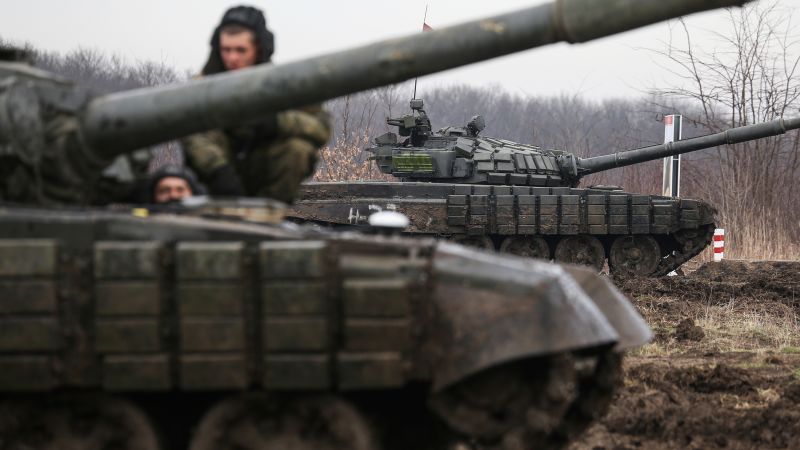Russia has lost a staggering 87 percent of the total number of active-duty ground troops it had prior to launching its invasion of Ukraine and two-thirds of its pre-invasion tanks, a source familiar with a declassified US intelligence assessment provided to Congress told CNN.
Still, despite heavy losses of men and equipment, Russian President Vladimir Putin is determined to push forward as the war approaches its two-year anniversary early next year and US officials are warning that Ukraine remains deeply vulnerable. A highly anticipated Ukrainian counteroffensive stagnated through the fall, and US officials believe that Kyiv is unlikely to make any major gains over the coming months.
The assessment, sent to Capitol Hill on Monday, comes as some Republicans have balked at the US providing additional funding for Ukraine and the Biden administration has launched a full-court press to try to get supplemental funding through Congress.



There’s no fallacy, since I’m not pretending that isn’t the case. Saying it doesn’t go to the American people isn’t strictly true. It’s an investment into the defense industry. That is wages and jobs. Those equal consumption further down the line. Could the resources be spent somewhere else? Sure. But I didn’t argue against that. I specifically took issue with saying that the money doesn’t go to the American people.
The people on the right, not the politicians but the actual people, hear how America is pretty much shipping cash to Ukraine (because the news they watch leave out the facts) which is where they get the idea of “Zelenskiy buying cocaine on their tab”. We have to make clear when we discuss these things that America is investing this money in local production. The products of those jobs are what is shipped to Ukraine. The money stays in America, and Zelenskiy isn’t buying a new yacht with them (which is one of the talking points I’ve heard from the right).
I do not disagree that there’s a discussion to be had, but I think it’s important to be clear about what the discussion actually is. I’m also in strong doubts about whether it needs to be a choice between weapons and other things. The United States can do both. The fact that both isn’t done speaks to the idea that not investing in arms for Ukraine wouldn’t mean that other investments were made instead.
For clarity:
That said, the World is as it is, Russia acts as it acts, so in overall other nations have to spend that money in weapons and military because of them anyway, and even in a pure, cold “financial analysis” (i.e. moral aside) the single most efficient way of achieving the desired result (stop Russia from fucking things up for everybody else) is by helping Ukraine militarily.
In fact, I think Europe (were I am) is still not doing enough in that front.
My point was entirelly on, in abstract, that using a country’s money to make weapons is generally not a good investment from an economic point of view.
deleted by creator